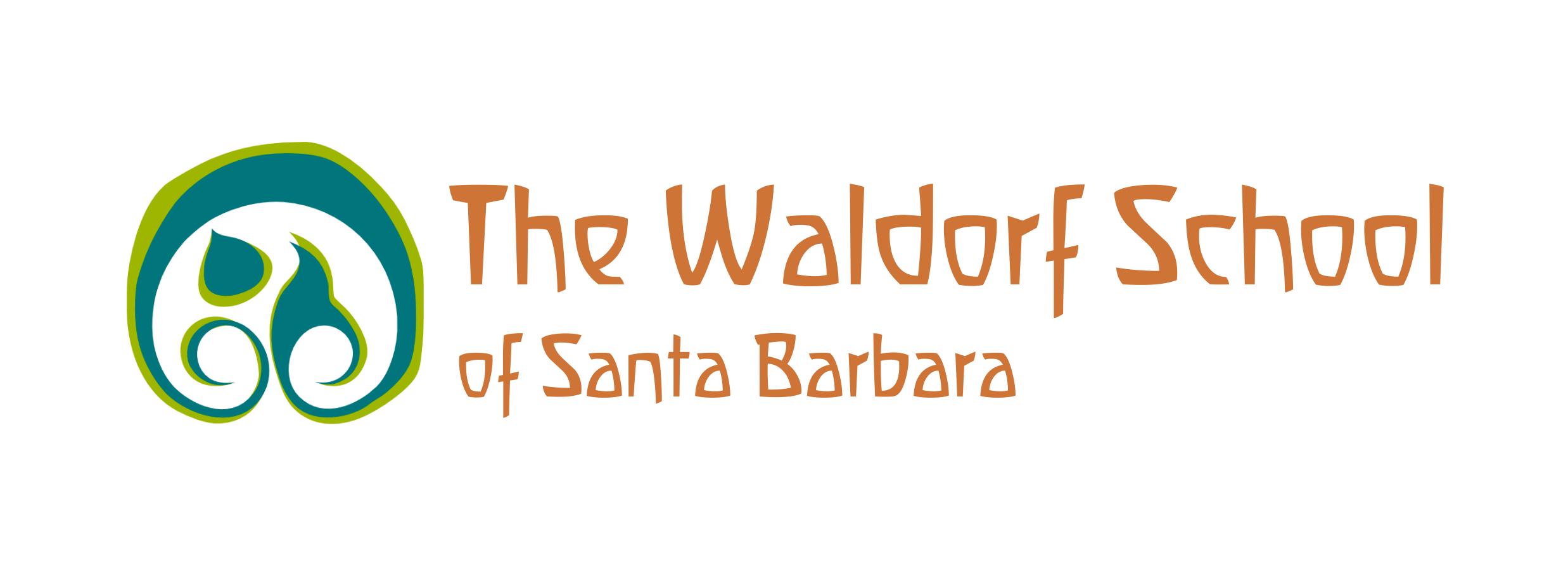Dragon Season
Dear Members of The Waldorf School of Santa Barbara Community,
Next Friday, October 1st, we celebrate Michaelmas, a festival day honoring Saint Michael. Because it falls near the equinox, this day is associated with the beginning of autumn, harvest, and the shortening of days. This occasion -- because of the story of Saint Michael fighting a seven-headed dragon in the Book of Revelation in the New Testament-- is also associated with confronting darkness.
But the battle with darkness, many note, is often an interior battle, a battle within. And this interior battle can often, paradoxically, be more of an interior befriending. Writes Rainer Maria Rilke: "And if only we arrange our life in accordance with the principle which tells us that we must always trust in the difficult, then what now appears to us as the most alien will become our most intimate and trusted experience. How could we forget those ancient myths that stand at the beginning of all races, the myths about dragons that at the last moment are transformed into princesses? Perhaps all the dragons in our lives are princesses who are only waiting to see us act, just once, with beauty and courage. Perhaps everything that frightens us is, in its deepest essence, something helpless that wants our love."
In light of society's polarization, the "Michaelic impulse" feels very relevant. Perhaps by making time for this impulse, this "shadow work"; perhaps by seeing with Walt Whitman that we are all "stuffed with the stuff that is coarse, and stuffed with the stuff that is fine," we might, in our humility, be more apt to dissolve the barriers and reach out to each other.
On Christmas Eve of 1914 on the brutal Western Front of the First World War, something remarkable happened. An English soldier reported how Germans began singing carols. The English followed suit. Jibes were then lobbed back and forth, some good-natured, some snide. Soon the Germans hoisted Christmas trees (complete with decorations and candles) on the parapets of their trenches. Eventually, one German yelled, “Tomorrow you no shoot, we no shoot!”
The following day, Christmas morning, soldiers of opposing armies—holding white flags or their hands up—entered the “no man’s land” between the barbed wire between the lines. They saw each other’s faces. They shook hands. They gifted each other cigarettes, beer, champagne; exchanged buttons from their coats. One German gave an English soldier a haircut. (Black curls fall to the ground, revealing large-lobed ears, a dirty neck.) They ate ham and dark bread. Biscuits, plum puddings, and chocolate. They played soccer with improvised balls. And they properly buried the dead, often praying together, communally, over the bodies. Afterwards, some traded addresses, promising to visit when the slaughter ended. Many such impromptu ceasefires occurred that day along the Western Front. It is estimated that almost 100,000 troops laid down their rifles (often in the teeth of orders from their superiors) to come together in spontaneous comradeship.
Artists Kevin Puts and Mark Campbell conjured this flowering of humanity in an opera called Silent Night, which won the Pulitzer Prize for music in 2012. “War is not sustainable,” Campbell said, “when you come to know your enemy as a person.” Ramana Maharshi, apropos of something unrelated, put it even more bluntly: “There are no others.” In light of our children and the polarization of the day, may we embody the healing and humane courage of those soldiers on the Western Front, the healing and humane courage of Saint Michael.
And please note that next Friday's Michaelmas celebration will be on campus and during the school day. And Friday will be a full day, not early dismissal. Regrettably we aren’t able to hold a community-wide Michaelmas festival this year, but encourage all families to incorporate an aspect of Michaelmas into their homes, such as:
* telling stories of personal courage;
* demonstrating courage in your actions ("My actions," says Thich Nhat Hanh "are my only true belongings.");
* making a harvest bread or craft;
* creating an autumn altar;
* making margins in one's days for stillness, for confronting/befriending one's dragons.
In gratitude,
The WSSB Admin Team
PS The poem of the day is by Michael Hannon:
LITANY & ARGUMENT
Tsunami, tornado, fire-storm,
shipwreck, the doomed airliner,
heart attack, stroke, melanoma,
murder, genocide, constant war...
Yes, she says, but the pie is so good.
